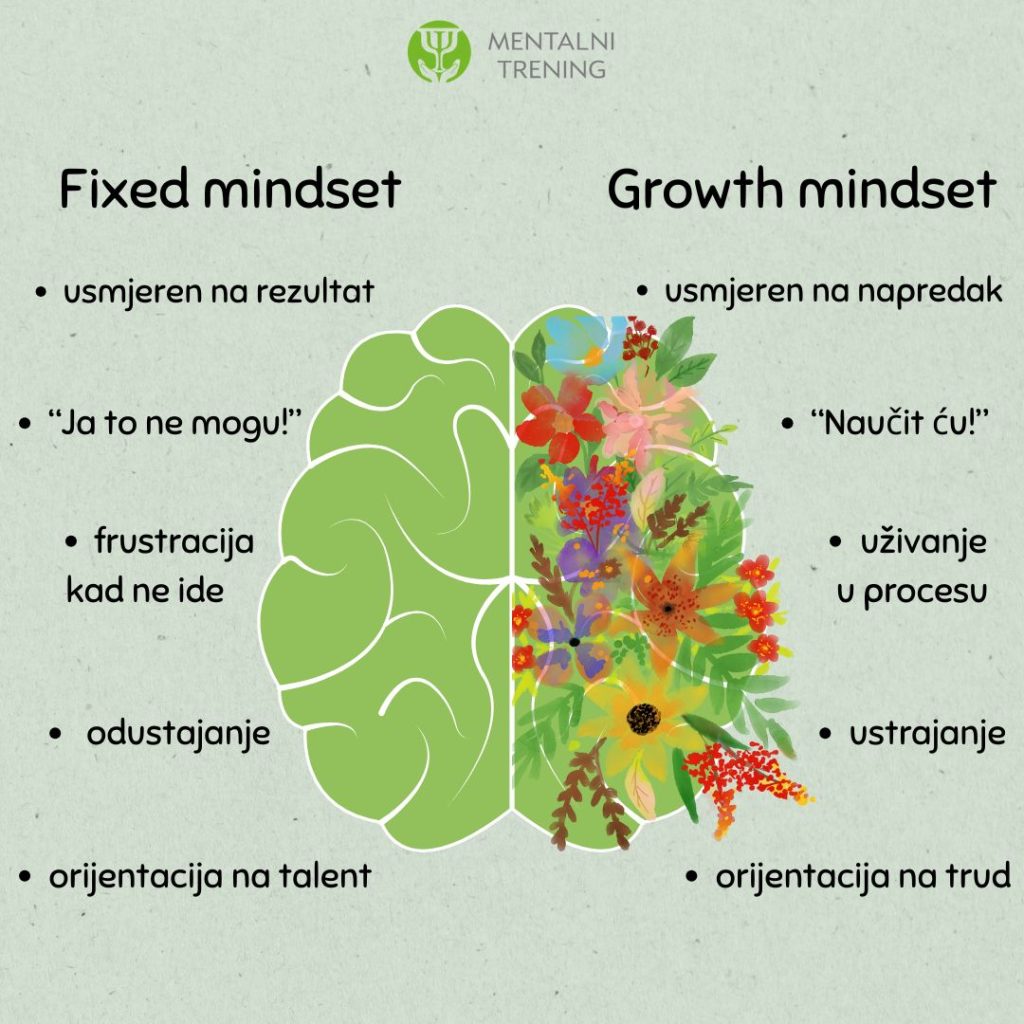Have you heard of the terms fixed and growth mindset? If we want to use strictly Croatian terms, then we’re talking about a fixed and growth mental framework. Mindset is defined as the way a person thinks, perceives the world around them, and explains situations and events in their environment.

Fixed Mindset – Key Characteristics:
Athletes with a fixed mindset believe that their abilities are unchangeable.
They rely on their talent, avoid major challenges, and have a strong fear of failure. They tend to give up more easily, often feel frustrated, and believe that certain abilities are innate and cannot be improved.
You will often hear them say things like:
“I can’t do this,” “I don’t know how,” or “They’re just better and stronger than me.”
Athletes with a fixed mindset find it harder to bounce back and are less likely to turn a game around when they start losing. When obstacles appear, they are most likely to give up.
Growth Mindset – Key Characteristics:
On the other hand, athletes with a growth mindset believe that their abilities can be developed through effort, learning, experience, and dedication.
They embrace challenges, learn from their mistakes, and see obstacles as opportunities for growth. They constantly seek ways to improve and are much more flexible in everyday life.
They are focused on learning and practice, and they believe that there is always room for improvement.
A growth mindset gives athletes greater resilience and helps them persevere longer when training is difficult or competitions don’t go as planned.
How to Develop a Growth Mindset in Athletes?
A growth mindset can be developed. Here are a few tips on how to do it:
Parents and Coaches:
- Emphasize the importance of effort and commitment.
Athletes who value effort and hard work are more resilient when they face obstacles, which are inevitable in any sports career. Praise your athletes when you see that they didn’t give up, even if they didn’t succeed. - Don’t chase the result; instead, focus on performance and progress.
Explain to your athletes how to perform certain skills and praise them when they follow your instructions. The results will come as a consequence.
Athletes:
- Work on your self-talk. One of the key factors that affect our performance is our thoughts and beliefs about whether we can succeed. Positive self-talk is a very important tool that every athlete must have in their toolbox.
- Focus on the things you can control.
We can’t influence everything in our environment, but that doesn’t mean it has to hold us back. Excessive focus on things we cannot change leads to frustration and feelings of helplessness.
That’s why you should redirect your focus to yourself, your routines, and your behavior. - Don’t beat yourself up over mistakes; instead, ask yourself what you can learn from them.
It may sound like a cliché, but mistakes and defeats are the best teachers. - Be mindful of how you set goals.
There are various rules—some of which we have already discussed—that help us set goals effectively.
Mental training
Through various mental training techniques, you can work on developing a growth mindset and help yourself step out of your comfort zone to reach your full potential.
Learning is something we all do throughout our entire lives and something that should never stop.






